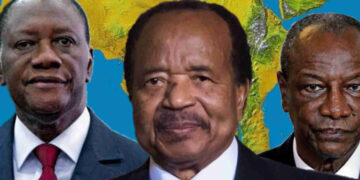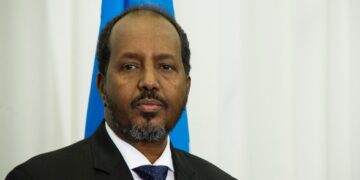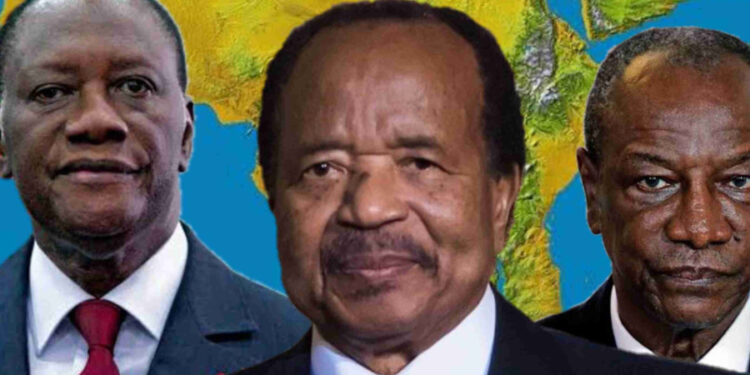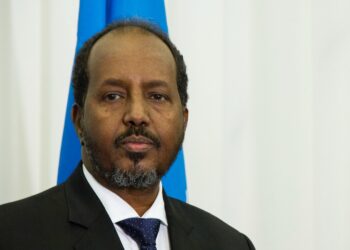By Ere-ebi Agedah Imisi
Of course when President Cryil Ramaphosa of South Africa went to the polls on Wednesday, May 29, 2024, the last worry on his mind was if his party would lose majority of the seats in the Parliament, considering that the African National Congress (ANC) has enjoyed 34 years of political dominance.
Some may argue that the ANC was aware that it was facing its toughest election this year needing 50 percent of the National Assembly to maintain its parliamentary majority. But on the other hand, after controlling a place for 30years confidence will naturally come upon anyone, this, the ANC wasn’t too far from such mindset.
Interesting turn out at the polls, but one must say that the ANC could only be saved by a coalition alliance. Thankfully, the ANC returned to power and President Ramaphosa was sworn back in and the circle continues.
This pattern of leadership continues to haunt Africa, where numerous leaders have clung to power for decades, often to the detriment of their nations. The recent elections in South Africa spotlight the pervasive nature of this “sit-tight syndrome”. Amidst growing poverty, rampant corruption, and a decline in infrastructure, the ANC’s prolonged grip on power mirrors the stories of other long-serving African leaders.
This phenomenon raises a pertinent question: could women leaders bring about the much-needed change and resist the urge to overstay their welcome?
Let’s take a look at a roll call of our male presidents who have stubbornly clung to power, or as some might say in street language, “have their placentas buried in the Presidency”.
Teodoro Obiang Nguema Mbasogo Of Equatorial Guinea (45 Years)
President Obiang has been in power since 1979, making him the longest-serving African president. In the early years of his rule, President Obiang was known for being a brutal dictator. He is 81 years old.
President Paul Biya Of Cameroon (42 Years Rule)
President Biya has been in power since 1982 and has overseen a regime characterized by authoritarianism, corruption, and economic stagnation. He is 90 years old.
According to Transparency International, Cameroon is ranked among the most corrupt countries globally.
Denis Sassou Of Republic Of The Congo (36 Years Rule)
President Denis Sassou has been in charge of the Republic of Congo for 36 years. He first came to power in 1979 and has since been re-elected three times. Sassou is currently among the oldest heads of state in Africa, at 80.
Yoweri Museveni of Repiblic Of Uganda (36 Years Rule)
In Uganda, President Museveni who came to power in 1986, has repeatedly altered the constitution to extend his presidency. Initially hailed as a liberator, Museveni’s tenure has increasingly been associated with autocracy, suppression of dissent, and human rights abuses.
These male-dominated, long-serving leaders have highlighted that Africa is home to many of the world’s longest-ruling heads of state. They have clung to power for decades and shown no intention of stepping down anytime soon.
This trend of extended terms in office, often lasting 20, 30, or even 40 years, raises the question: Can Africa overcome this “sit tight” syndrome?
Gender Perspective: Could Women Lead Differently?

Heritage Times HT spoke with Nanco Kumbi a rural women ambassador who noted that if women are given more opportunities at leadership, the continent will experience development because women indeed lead differently.
‘‘Women leaders frequently exhibit qualities such as empathy, collaboration, and a deep commitment to social welfare, which can result in more inclusive and holistic decision-making processes.
‘‘Historically, women in leadership have often been associated with more inclusive and empathetic governance. Studies suggest that women leaders are less likely to engage in corruption and more likely to prioritize social issues such as healthcare, education, and poverty alleviation.
‘‘Example Ellen Johnson Sirleaf of Liberia, Africa’s first elected female head of state, during her tenure from 2006 to 2018, Sirleaf implemented significant reforms, improved women’s rights, and stabilized a country ravaged by civil war. Although not without criticisms, her leadership style contrasted sharply with the sit-tight tendencies of many male counterparts.
‘‘I am of the opinion that women should be supported, special funds to be marked out for women in politics so that they can compete with their male counterparts and win elections, I believe that if we do this we will have a different story in Africa,’’ she said.
Embracing Change And Fresh Ideas
Imagine a country where new ideas constantly breathe life into governance, where leadership changes regularly to keep perspectives fresh and accountability high. This is the kind of progress that nations like Ghana and Botswana are experiencing.
In Ghana, democratic processes ensure peaceful transitions of power, leading to steady economic growth and a vibrant political landscape. Botswana’s approach to regular leadership changes has nurtured one of Africa’s most stable and prosperous economies.
These countries show us that when a nation embraces change and welcomes new ideas, it can create a dynamic, thriving society where progress and stability go hand in hand.
Consequences Of Poor Governance
In Africa, the persistence of poor governance and entrenched leadership has taken a heavy toll.
According to the African Union, between 2010 and 2020, there were 18 attempted or successful military coups, with a shocking 10 since 2019, this surge reflects the growing frustration of people with corrupt, ineffective political systems and leaders who cling to power.
In countries like Mali, Guinea, and Sudan, recent coups were fueled by public anger over corruption, poverty, and failed governance. The human cost of poor governance is too high, and the call for change is urgent.
Embracing Change For A Better Future
For 34 years, the ANC has held power in South Africa, but the country’s post-apartheid hope has been overshadowed by economic and social decline. This pattern isn’t unique to South Africa; in nations like Nigeria, Uganda, and Cameroon, the prolonged grip on power by leaders has stifled progress and entrenched poverty and corruption.
African leaders must break free from this “sit-tight” syndrome. Embracing change, fostering democratic processes, and Promoting Women Leaders can pave the way for more dynamic and responsive governance. The continent’s future depends on welcoming new ideas and leaders dedicated to development and prosperity.




































